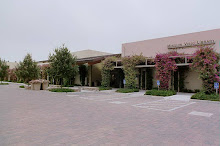 In the early days of the Internet, before Google, people had to search and hunt for useful web sites. There were books like the Internet Yellow Pages (which in a way is the ultimate in technology ridiculousness) and people would have scores of bookmarked pages as their browser favorites. In the library world, we would memorize sites like we would reference books. Remembering the URL of a page, and knowing what was on it was just as good as knowing what was on the shelves of books.
In the early days of the Internet, before Google, people had to search and hunt for useful web sites. There were books like the Internet Yellow Pages (which in a way is the ultimate in technology ridiculousness) and people would have scores of bookmarked pages as their browser favorites. In the library world, we would memorize sites like we would reference books. Remembering the URL of a page, and knowing what was on it was just as good as knowing what was on the shelves of books.But now there are billions of pages of information. Things are being created all the time and information is changing faster than anyone can image. To compensate a little for this quickness, there are now tools that cull information and lump it all together for users. One tool which is very useful is the simple email program. Many places (like the library) offer email newsletters, which are sent out periodically. So if its a daily cartoon, stock quotes, weather reports or whatever sent to your email, those are pages you don't need to remember or bookmark. They just arrive in your email inbox.
Some of the more fun ways of getting information sent to is by receiving emails alerts. This is different than the newsletters because as soon as the information is found, it is sent to you. Google has an alert system that will send you mail that contain any words you select. It could come from a blog, video, web page or news story. So if there is a specific thing you search for all the time, you can create a Google alert and just have the data mailed to you. Most news web sites and blogs have email alerts available, so you just need to sign up with each source individually. An email alert system that's a little closer to home is the notification systems the library uses. We have the ability to setup emails for when your holds come in and also when your checked out items come due. To set this up, you would need to talk to our Circulation Department stationed at the Checkout Desk in the library.
Another slick way to compile information from many different websites is using something called RSS. If a web page is configured to setup RSS, than a user can "subscribe" to the page using an RSS Reader. Also called Feed Readers, or Aggregators, these tools can be either web based or programs installed on your computers hard drive. Newer browsers from Internet Explorer, FireFox and Chrome have readers integrated into them. Also, email programs like Outlook have Feed Readers as features. A couple of the web based RSS Readers are called Bloglines, MyYahoo, and Google Reader. All of these tools are designed to collect data from web pages you select.




No comments:
Post a Comment